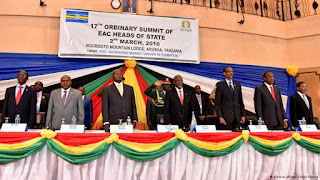Should the “Ethiopia” Occupied Somalis Call Themselves Ethiopians?
In the words of John Markakis, a leading political historian in the horn of Africa, the Christian empire of “Aksumite that flourished on the northmost part of the plateau in the classical times” but letter faded after Islam spread northwards “is considered the ancestor” of the empire of “Ethiopia” which occupies the land Dr. Nuur Hassan recently stated is “populated by a mixed ethnics” refereeing the current “nation-state of Ethiopia”.
Aksumite descendants who claimed that they were also the “fanciful decrescent from King Solomon”, Prophet Sulaiman, and Queen of Sheba emerged from the dwindle of the Aksumite empire and adopted the name “Ethiopian” to provide a religious foundation to their emerging kingdom in the 13th century. In the words of Markakis “the very name of this society drives its faith. Its origins lay in ancient Greek references to as “Aethiopes” (‘burnt face’). In the Septaugint version of the Old Testament, the Hebrew name ‘Cush’ was translated into Greek “Ethiopia” and then adopted by the faithful on the northern plateau.” The founders of this religious kingdom who identified themselves “Ethiopians” were also known as Abyssinians or Habesha.
Thus, though this “Ethiopian”, “Abyssinian”, or “Habesha” kingdom in the northern plateau had been a bitter rival of the lowland Muslim Sultanates and other surrounding indigenous states, it was only after the advent of the European imperialism when the emperor of the kingdom known as Minnelek II vowed ““if powers at distance came forward to partition Africa, I don’t want to be an indifferent spectator” as Markakis quotes, and successfully run a brutal imperialist expansion which obliterated indigenous polities including that of Somalis, Adal, and vanished them from the face of the earth then proudly created the empire whose remaining is the current FDRE after Eretria gained its independence.
During the process of the empire building, “non-Christian could not be an ‘Ethiopian’ or an Ethiopian anything but a Christian” in the words of Markakis. After the kingdom became an empire, the name Ethiopian acquired a political meaning. Markakis states the builders and rulers of the empire became known as Habesha/Abyssinians including those abandoned their religion, culture and assimilated to the Abyssinian religion and culture. In other words, those accepted the subjugation and those subjugating became known as Ethiopians/Abyssinian or Habesha while those resisted or stuck to their identity became aliens and enemy to be suppressed.
Therefore, one faces the danger of being found guilty of dishonest or ignorance if s/he just gives the semantic meaning of the name Ethiopian, Abyssinian or Habesha without not explaining the historical facts and meanings attached to them and then openly advocates occupied Somalis to identify themselves “Ethiopians”
Until the arrival of TPLF and the adoption of the current nominal ethnic federalism in 1991, the homogenization of the conquered nations on the lines of the culture (religion and language) of the Abyssinians/Habesha, has been the master narrative of the “nation” building and governing. Convinced with the fact that it’s unfeasible to hold the oppressed nations any longer the way in the past, the TPLF political program acknowledged the fact that the empire consisted of oppressed nations which were dominated by Habesha/Abyssinians, in the past. Meles Zenawi stated, “if you don’t open the doors and window of the house, those confined in it will break the doors and the walls and run out to get fresh air.” Accordingly, TPLF adopted sham ethnic federalism that grants cultural liberty, not including freedom of religion to allow breathing the fresh air and postpone the breakup of the house.
This deceptive policy and empire arrangements have shown success in the occupied Somalis as one could have seen nowadays people calling the language liberalization and the freedom of traditional dancing “ethnically Somali and nationally Ethiopian” and identifying themselves “Somali-Ethiopians”.
Occupied Somalis are one of the nations that have been heavily resisting this colonial domination of the Abyssinians and the identity suppression up to today and thus have been and are aliens and enemy to be suppressed if they don’t impress the Abyssinians. From the Era of the Sayid Mohamed A. Hassan in 1920s to the current struggle led by ONLF, the sons and daughters of the occupied Somalis fought many bitter wars to resist identity suppression and restore their honor, dignity and above all sovereignty. Accordingly, though Abyssinians will not invite them to the Ethiopianess unless Somalis abandon their identity, identifying themselves Ethiopians is not only humiliation and committing genealogical treason, it is also a generational betrayal. Occupied Somalis should never ever identify themselves “Ethiopians”.



